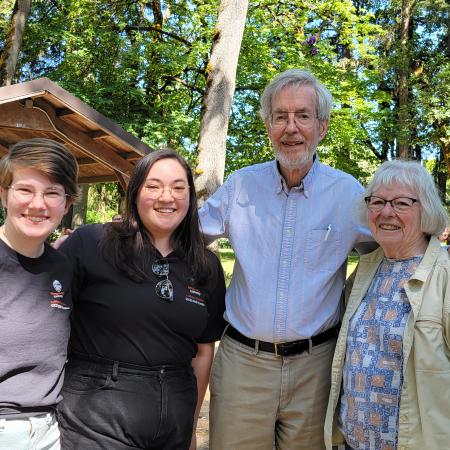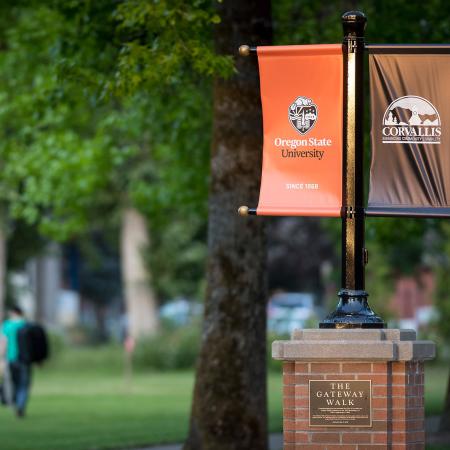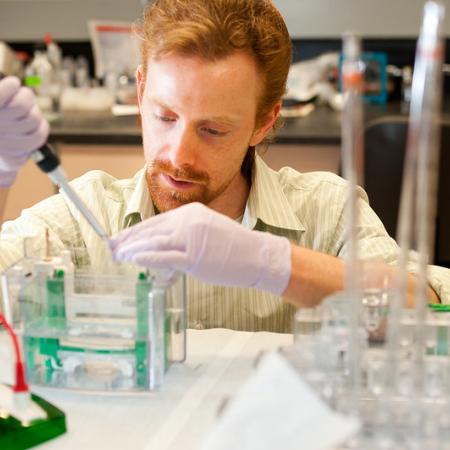The College of Science is proud to announce that Brittany Lasher, a first-year biochemistry and biophysics Ph.D. student, has been selected as the 2020-21 Christopher and Catherine Mathews Graduate Fellow.
Established in 2015, the award serves to help the Biochemistry & Biophysics Department recruit talented and diverse students from around the country. The fellowship is awarded each summer to a student entering the second year of the Ph.D. program who shows excellence in academic merit, teaching acumen and research potential. The gift is leveraged through the Provost Graduate Fellowship Match Program which is a partnership of the OSU Foundation, the Biochemistry & Biophysics Department and the OSU Graduate School.
A Pacific Northwest native, Lasher did not realize her passion for science until she attended a community college near her home in Washington. Initially unsure of what she wanted to study, Lasher settled on chemical engineering for her bachelor’s degree at the University of Washington. Conducting undergraduate research in Professor of Chemistry Jim Pfaendtner’s lab was her first introduction to using computational tools to understand biological processes – an interest that continues to motivate her research today.
To further her knowledge about biological systems, Lasher pursued her master’s degree in biomolecular engineering at Johns Hopkins University. Working with Professor Jeffrey Gray for her thesis, she used computational methods to engineer enzymes to increase production of a small molecule used to treat Parkinson’s disease.
A Washington native, Lasher had resigned herself to staying on the East Coast for four more years of graduate school, but was thrilled when the opportunity to return to the Northwest presented itself. In the first year of her Ph.D. program Oregon State, she rotated between Professors Elisar Barbar, David Hendrix and Afua Nyarko, giving her the opportunity to work on a variety of projects that expanded her understanding of biochemical and biophysical systems.
“I’m so happy I chose Oregon State – it just feels like a family here. I’ve been in other labs where it gets really competitive, but here it feels so collaborative.”
Although Lasher was fascinated by all of her research, she ultimately chose to join the Hendrix lab where she will continue to advance her understanding in computational biochemistry. This summer, she has continued to use bioinformatics to generate sinusoidal models that can predict the time that corresponds to a gene expression sample. The data that they gather will provide insight into gene-regulation by the detection of key rhythmic genes effected by age or disease.
Chris Mathews, for whom the fellowship is named, is an emeritus distinguished professor who served as department chair for the Department of Biochemistry & Biophysics from 1978 to 2002. He had an outstanding impact on the department throughout his tenure and helped advance research in the area of nucleotide metabolism. He co-authored a highly regarded biochemistry textbook and continues to serve the community as a mentor, teacher and role model.




